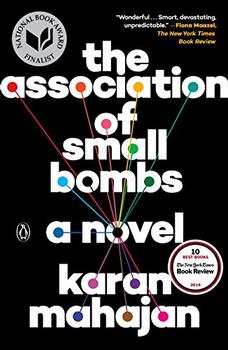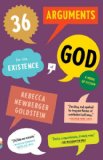Summary | Excerpt | Reviews | Beyond the book | Read-Alikes | Genres & Themes | Author Bio

Reading The Geometry of God was an experience of total immersion, not because I read it in two days but because of the power of the writing and the voices of its four main characters. I dreamed about the place, the story and the characters both nights after reading, although modern-day Pakistan is a country and culture almost completely alien to me. Uzma Aslam Khan has created exactly what I desire from fiction: to be transported to another world where the problems and rewards of living get worked out in a parallel but utterly different matrix to the world I know.
Each character must move outside of familial expectations in order to follow and realize his or her interests and passions. As the women make choices and take risks, the men must decide how love fits in with political and professional pressures. In a culture increasingly enmeshed in modern global realities, both religious and familial traditions are challenged to continuous breaking points. All of this living takes place in a Muslim country with a government run by the military fundamentalism of General Zia and a history of civil war, death and displacement.
The Geometry of God is a read as challenging as its title. Until I did an hour or two of research on the history of Pakistan, the cities in which the story takes place and a quick overview of Islam, Sufism and Urdu (the official language of Pakistan), I was quite adrift in the opening chapters. Khan intersperses her rich and poetic command of English with Urdu words, though she does provide a brief glossary. It also helped me to get some familiarity with paleontology (the study of fossils and prehistoric creatures). Some readers may find this novel just too inaccessible.
Having invested that bit of time into some study paid off, however, in an elegant, sensuous and deeply emotional journey through two decades of these characters' lives. On the same day that eight year old Alma achieves scientific renown for finding the fossil that becomes known as the "diamond key" to her grandfather's research and thus finds her path in life, she becomes mother and teacher to her blind baby sister Mehwish. By teaching her sister to read and "see" the world through drawing letters on her spine, Alma opens up the uncanny awareness Mehwish brings to writing poetry and to claiming the heart of Noman. Grandfather Zahoor, who loves his granddaughters deeply, whose scientific curiosity will not be silenced by fundamentalism, is still blinded by his gender, and ends up hurting them in ways he cannot begin to see. Noman, with his gift for math and his devotion to Zahoor, cannot avoid a cruel betrayal of these people until he finds the truth of his relationship with his father.
The story circles through each character's perception of events, like a piece
of improvisational music, sifting through the themes of religion vs. science,
imagination vs. doing, intellect vs. the senses, and freedom vs. duty. Despite
layers of history and decades of turmoil, both love and intelligence prevail.
Uzma Aslam Khan presents a convincing case for knowledge and dialogue as the diamond
keys to human and international understanding.
![]() This review
first ran in the January 13, 2010
issue of BookBrowse Recommends.
This review
first ran in the January 13, 2010
issue of BookBrowse Recommends.

If you liked The Geometry of God, try these:

The Association of Small Bombs
by Karan Mahajan
Published 2016
The Association of Small Bombs is an expansive and deeply humane novel that is at once groundbreaking in its empathy, dazzling in its acuity, and ambitious in scope.

36 Arguments for the Existence of God
by Rebecca Goldstein
Published 2011
A hilarious, heartbreaking, and intellectually captivating novel about the rapture and torments of religious experience in all its variety.
Your guide toexceptional books
BookBrowse seeks out and recommends the best in contemporary fiction and nonfiction—books that not only engage and entertain but also deepen our understanding of ourselves and the world around us.